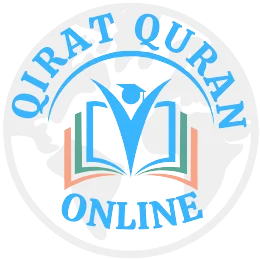Eid Milad Un Nabi
Introduction
Muslims all across the world celebrate Eid Milad Un Nabi, also known as Mawlid al-Nabi, as an important and happy festival. It honors the birth of the last Islamic messenger, Prophet Muhammad (Peace Be Upon Him).
12 Rabi ul Awal
For Muslims all over the world, 12 Rabi ul Awal, also known as Eid Milad Un Nabi, is a very important and celebrated day. On this day in history, Prophet Muhammad (pbuh), the last of Islam’s messengers, was born. The day includes various rituals and traditions that honor the life and teachings of the Prophet and encourage faith and joy. In this in-depth section, we will look at the significance of 12 Rabi ul Awal, its history, how it is commemorated and how it affects the lives of Muslims.
Eid Milad Un Nabi 2023
The birth of the Islamic Prophet Muhammad is commemorated on Eid Milad-un-Nabi, also known as Mawlid al-Nabi. The most important Islamic holiday is celebrated in 2023 on the 27th day of the Islamic month of Rabi’al Awwal.
The Significance of Eid Milad Un Nabi
For Muslims, Eid Milad Un Nabi is a day that has great spiritual importance. It does numerous things.
Reflecting on the Prophet’s Life
Muslims could use Eid Milad Un Nabi to reflect on the Prophet Muhammad’s life, deeds, and character. Now is the time to be inspired by his exceptional behavior and apply his teachings.
Expressing Love and Gratitude
On this day, Muslims show their abiding love and thanks for the Prophet. They consider his message to be one of blessing for all of humanity since it promotes peace, compassion, and harmony.
The History of Eid Milad Un Nabi
Since the beginning of Islam, people have celebrated the Prophet’s birth. However, the manner in which it is observed has changed over time and differs among cultures and geographical areas. Some important historical events are.
Early Celebrations and Jashne Eid Milad un Nabi
The Prophet’s homeland of Medina, where the earliest birthday celebrations were first noted, dates to the eighth century. It was initiated by the then ruler Al-Ma’mun and is celebratory known as Eid Milad Un Nabi.
Contemporary Observance
The way that Eid Milad Un Nabi is observed nowadays differs greatly. While some Muslims observe it quietly with prayers and Quran readings, others take part in spectacular public celebrations.
How Eid Milad Un Nabi is Celebrated or Eid Milad un Nabi Mubarak ?
The way Eid Milad Un Nabi Mubarak is observed may differ substantially from one location to another. However, some common traditions and rituals are as follows.
Special Prayers
Muslims assemble in mosques and other religious institutions to participate in special congregational prayers on this day and. These prayers frequently involve the reading of the Prophet’s biography and the recital of Quranic passages.
Naat Recitations
Naats (poems and melodies) that respect and laud the Prophet are frequently recited or heard by Muslims gathered together. These naats stress his honorable nature and function as the final Islamic messenger.
Procession
Processions are planned in several locations, with people carrying banners, flags, and representations of the Kaaba. Speeches and sermons are frequently delivered in conjunction with these processions.
Charitable Acts and happy Eid Milad un Nabi
Many Muslims take use of this opportunity to perform deeds of compassion and charity. They might visit the ill, feed the hungry, or contribute to the less fortunate and said happy Eid Milad un Nabi.
Decorations
To honor the joyous occasion, homes and mosques are frequently decorated with lights and ornaments.
Conclusion
Eid Milad Un Nabi acts as a remembrance of the Prophet Muhammad’s life, teachings, and position as a mentor and inspiration for Muslims throughout. This day emphasizes the value of love, unity, and thankfulness in the Muslim community, whether it is observed quietly via prayer and reflection or with a grand public celebration.
While there may be differences in how Muslims commemorate Eid Milad-un-Nabi, the underlying message of peace, compassion and emulation of the Prophet remains a unifying theme for Muslims in gathering the faithful, reflecting on the legacy of the Prophet and trying to live by his teachings every day There is a time.
FAQS:
Mawlid al-Nabi, another name for Eid-e-Milad-un-Nabi, commemorates the birth of the Prophet Muhammad (Peace Be Upon Him) and is marked by religious gatherings, Quran recitation, and talks on his life and teachings.
Muslim greetings for this day may include “Eid Mubarak” or “Happy Mawlid.”
Common elements of celebrations include group prayers, shared meals, charitable deeds, and expressions of adoration for the Prophet Muhammad (Peace Be Upon Him).
Share on >>
